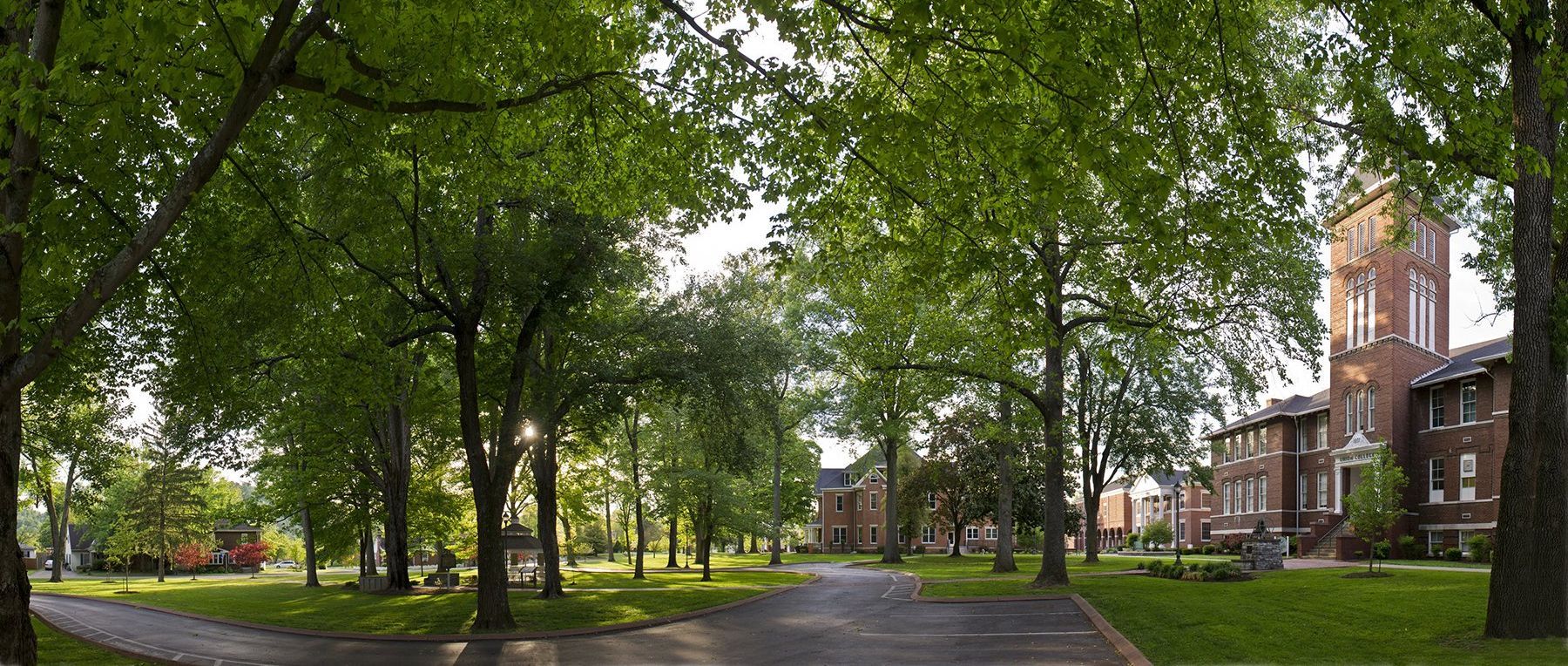Physical Science Minor Requirements (At Least 29-31 Semester Hours)
At least 23 semeseter hours in Physics and/or Chemistry, including:
Two (2) sequential semesters of freshman Physics and lab from either algebra-based track or the calculus-based track (PHYS 111/PHYS 112/PHYS 113/PHYS 114 or PHYS 211/PHYS 212/PHYS 213/PHYS 214):
PHYS 111 College Physics I (3 Credit Hours)
A two-semester sequence, these courses are intended for life science and non-science students. They must be taken sequentially. PHYS 111 topics include mechanics of motion; the properties of solids, liquids, and gases; and thermal phenomena. PHYS 112 topics include wave motion and vibrations; electricity and magnetism; optics; and selected topics in modern physics. Does not count toward a minor. Corequisite: MATH 131 or permission from instructor
PHYS 112 College Physics II (3 Credit Hours)
A two-semester sequence, these courses are intended for life science and non-science students. They must be taken sequentially. PHYS 111 topics include mechanics of motion; the properties of solids, liquids, and gases; and thermal phenomena. PHYS 112 topics include wave motion and vibrations; electricity and magnetism; optics; and selected topics in modern physics. Does not count toward a minor. Corequisite: MATH 131 or permission from instructor
PHYS 113 College Physics Lab I (1 Credit Hour)
Laboratory experiments accompanying PHYS 111 and PHYS 112 respectively to illustrate basic principles and develop laboratory skills. No credit may be received for these laboratory courses without concurrent or prior completion of the corresponding lecture course.
PHYS 114
College Physics Lab II (1 Credit Hour)
Laboratory experiments accompanying PHYS 111 and PHYS 112 respectively to illustrate basic principles and develop laboratory skills. No credit may be received for these laboratory courses without concurrent or prior completion of the corresponding lecture course.
Or
PHYS 211
General Physics I (4 Credit Hours)
A two-semester sequence which must be taken in order. Mechanics of solids, liquids and gases; laws of thermodynamics; kinetic-molecular theory, vibrating bodies; wave physics; laws of Coulomb, Faraday, Ampere, Ohm, Joule, and Lenz; electromagnetism; and optics. Prerequisite or Corequisite: MATH 242
PHYS 212
General Physics II (4 Credit Hours)
A two-semester sequence which must be taken in order. Mechanics of solids, liquids and gases; laws of thermodynamics; kinetic-molecular theory, vibrating bodies; wave physics; laws of Coulomb, Faraday, Ampere, Ohm, Joule, and Lenz; electromagnetism; and optics. Prerequisite or Corequisite: MATH 242
PHYS 213
General Physics Lab I (1 Credit Hour)
Laboratory components accompanying PHYS 111 and PHYS 112 respectively. A general physics laboratory course involving experiments in mechanics, heat, sound, electricity, magnetism, and optics. Experiments are coordinated with PHYS 211-PHYS 212. No credit may be received for these laboratory courses without concurrent or prior completion of the corresponding lecture course.
PHYS 214
General Physics Lab II (1 Credit Hour)
Laboratory components accompanying PHYS 111 and PHYS 112 respectively. A general physics laboratory course involving experiments in mechanics, heat, sound, electricity, magnetism, and optics. Experiments are coordinated with PHYS 211-PHYS 212. No credit may be received for these laboratory courses without concurrent or prior completion of the corresponding lecture course.
CHEM 121 General Chemistry I (4 Credit Hours)
Chem 121-122. A 2-semester sequence. A systematic study of the fundamentals and applications of the experimental and theoretical laws of chemistry. Major topics include nomenclature, stoichiometry, chemical thermodynamics, equilibrium, acid-base reactions, atomic and molecular theory and structure, chemical kinetics, and nuclear chemistry. Examples and problems are drawn from all areas of chemistry. Laboratory experiments in general chemistry illustrate basic principles and develop laboratory skills. Experiments are coordinated with the General Chemistry topics. Inorganic qualitative analysis is included in CHEM 122. Three hours of laboratory per week. Prerequisite: A working knowledge of algebra such as is acquired in two years of high school algebra, or MATH 131 (which may be taken concurrently), or a composite ACT score of 21. CHEM 121 and CHEM 122 are prerequisites to all other chemistry courses.
CHEM 122 General Chemistry II (4 Credit Hours)
Chem 121-122. A 2-semester sequence. A systematic study of the fundamentals and applications of the experimental and theoretical laws of chemistry. Major topics include nomenclature, stoichiometry, chemical thermodynamics, equilibrium, acid-base reactions, atomic and molecular theory and structure, chemical kinetics, and nuclear chemistry. Examples and problems are drawn from all areas of chemistry. Laboratory experiments in general chemistry illustrate basic principles and develop laboratory skills. Experiments are coordinated with the General Chemistry topics. Inorganic qualitative analysis is included in CHEM 122. Three hours of laboratory per week. Prerequisite: A working knowledge of algebra such as is acquired in two years of high school algebra, or MATH 131 (which may be taken concurrently), or a composite ACT score of 21. CHEM 121 and CHEM 122 are prerequisites to all other chemistry courses.
CHEM 314
Physical Chemistry Lab (1 Credit Hour)
A laboratory course designed to accompany CHEM 313, CHEM 332, and PHYS 331.
And one of the following three courses:
CHEM 332 Physical Chemistry (3 Credit Hours)
A study of atomic structures and chemical bonding in terms of modern quantum theory. Topics include quantum mechanics, molecular spectra, and chemical kinetics. Prerequisites: MATH 242 and PHYS 212. Odd years only
CHEM 332
Physical Chemistry (3 Credit Hours)
A study of atomic structures and chemical bonding in terms of modern quantum theory. Topics include quantum mechanics, molecular spectra, and chemical kinetics. Prerequisites: MATH 242 and PHYS 212. Odd years only
PHYS 331
Heat and Thermodynamics (3 Credit Hours)
Thermodynamic systems and processes, equations of state, PVT surfaces and real substances, laws of thermodynamics, energy equations, enthalpy, entropy, thermodynamic potentials, and application of thermodynamics to simple systems. Prerequisite: PHYS 212. Prerequisite or Corequisite: MATH 243. Odd years only.
Plus 6 hours of electives to be chosen from Chemistry, Physics, or Math (MATH 321, Discrete Mathematics, or higher)


